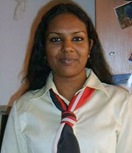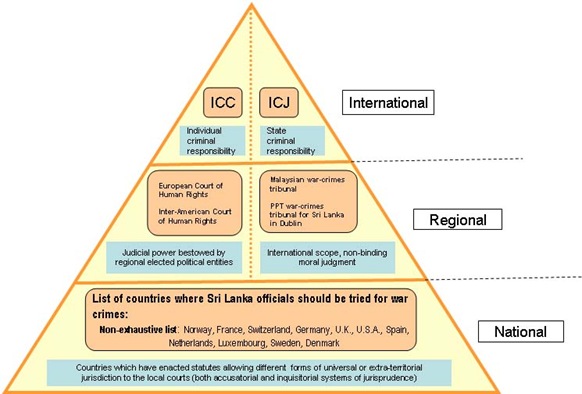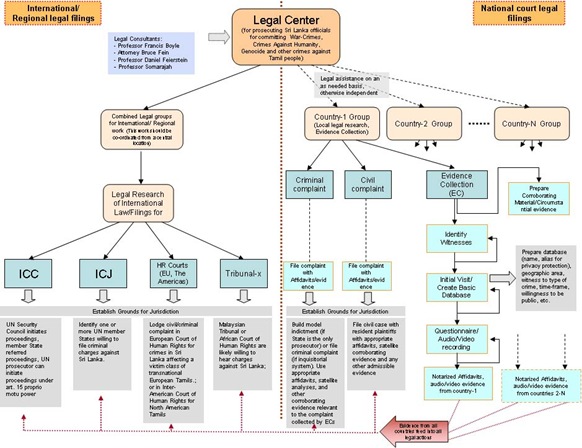 Vigorous advocacy of Tamils rights inside the halls of political power and in the streets of the West by the increasingly active expatriate Tamil youths portends a hopeful and optimistic future to Tamils battered by inaction of the international community and subjected to continued acts of cultural, physical genocide carried out with impunity by Colombo. As humanity steps into the dawn of the next decade, the emergence of organized youth groups trained in international law and sharing knowledge across State borders to advance the prospects of prosecuting alleged Sri Lanka’s war-criminals and to bring justice to Tamils, stands as an important example of the political progress, grounded in the moral code of community responsibility, diaspora youths have made since the Mullaiththeevu massacre of May 2009.
Vigorous advocacy of Tamils rights inside the halls of political power and in the streets of the West by the increasingly active expatriate Tamil youths portends a hopeful and optimistic future to Tamils battered by inaction of the international community and subjected to continued acts of cultural, physical genocide carried out with impunity by Colombo. As humanity steps into the dawn of the next decade, the emergence of organized youth groups trained in international law and sharing knowledge across State borders to advance the prospects of prosecuting alleged Sri Lanka’s war-criminals and to bring justice to Tamils, stands as an important example of the political progress, grounded in the moral code of community responsibility, diaspora youths have made since the Mullaiththeevu massacre of May 2009.
 From Australia to Canada, the significance of the contributions of second generation Tamil youth in Sri Lanka legal project has been significant. Since many international courts are based in Europe, the work has naturally centred in Europe, especially in Switzerland, where youths have taken active role, says Arulnithila Deivendran of Swiss Council of Eelam Tamils, recognising the significance of the contribution of Tamil youth from different parts of the world.
From Australia to Canada, the significance of the contributions of second generation Tamil youth in Sri Lanka legal project has been significant. Since many international courts are based in Europe, the work has naturally centred in Europe, especially in Switzerland, where youths have taken active role, says Arulnithila Deivendran of Swiss Council of Eelam Tamils, recognising the significance of the contribution of Tamil youth from different parts of the world.
Arulnithila also said, in 2010 a new trend of knowledge-based second generation youths leading and taking forward the Tamil Genocide Project has emerged. "The result is evident in Australia, Canada and Europe," she said, adding "youths have taken active role in various levels, according to the prevailing needs in the part of the globe they are domiciled: In Australia, the youth contribution has been focused at building genocide awareness and is now maturing into concerted legal action, while in Europe the youth are already engaged in preparing legal action."
 Amnesty constructed the "shared responsibility model of international justice," a strategy to make "dramatic progress in improving the effectiveness of inter-state cooperation in national investigations and prosecutions based on universal jurisdiction."
Amnesty constructed the "shared responsibility model of international justice," a strategy to make "dramatic progress in improving the effectiveness of inter-state cooperation in national investigations and prosecutions based on universal jurisdiction."
Largely based on this model, the Switzerland Council of Eelam Tamils (SCET) and US-based Tamils Against Genocide (TAG) are advancing a diaspora-driven "shared responsibility model" of international justice, collaborating horizontally with Tamil diaspora organizations supporting the effort to hold the Rajapakse administration responsible for jus cogens norm violations committed during Eelam War IV. The arrangement avoids duplicate efforts, and allows the network members to respond fast,
 "An effectively organized legal Tamil-diaspora network, working with a transnational panel of lawyers should make the threat of arrest real for all alleged war-criminals from Sri Lanka when, and if, they embark on foreign travel. Events surrounding Sri Lanka’s President Rajapakse’s recent hurried and unannounced exit from UK have amply demonstrated the predicament of even the highest level officials from Sri Lanka trying to escape falling into foreign legal nets," Jan Jananayagam, an aspiring European Member of Parliament and UK-based spokesperson for TAG, said.
"An effectively organized legal Tamil-diaspora network, working with a transnational panel of lawyers should make the threat of arrest real for all alleged war-criminals from Sri Lanka when, and if, they embark on foreign travel. Events surrounding Sri Lanka’s President Rajapakse’s recent hurried and unannounced exit from UK have amply demonstrated the predicament of even the highest level officials from Sri Lanka trying to escape falling into foreign legal nets," Jan Jananayagam, an aspiring European Member of Parliament and UK-based spokesperson for TAG, said.
"SCET and TAG’s work over the past several months, supporting an expanding Tamil transnational legal network, should produce multiple filings of criminal cases in 2011 against specific individuals in the Rajapakse administration," a student political activist Lathan Suntharalingam told TamilNet, adding, "unlike after Black July genocidal attack on the Tamil commuity in 1983, when the Tamil political class did not have the knowledge or resources to pursue international criminal justice options, we are committed to ending the six decades of systemic rights violations and impunity in Sri Lanka."
"The goal is to first firmly establish the overall legal framework for prosecution and in parallel embrace all Tamil youths with a legal bent to join the challenge in taking forward the myriad of actionable legal projects local to their country of domicile or in international judical forums," Suntharalingam said.
Expatriate Tamils have widely acknowledged and applauded the manner in which the National Council of Canadian Tamils (NCCT), with the participation of youth, structured and carried out the UN-panel submissions. The youth in NCCT and those in Australia are soon to engage in a collaborative legal project with support from SCET and TAG, sources from SCET said.
SCET has also begun collaborating with Palestinian legal networks to gather knowledge on how to bring strategic litigation to fight the State-sponsored Buddhist Sinhala colonization schemes of post-Mullaivaikal Vanni Region, which mirror the Israeli-settlement expansion model in West Bank and East Jerusalem, according to SCET officials.
"2011 should be a year when the Tamil youths will demonstrate how they have mastered the nuances and sometimes complex jurisprudence of various international legal systems, and how efficiently they have harnessed these systems to the benefit of their community seeking justice," Suntharalingam said.
Hierarchy of venues available for legal action [Illustration by TamilNet]
Functional framework for legal action [Illustration by TamilNet]
(For updates you can share with your friends, follow TNN on Facebook and Twitter )


